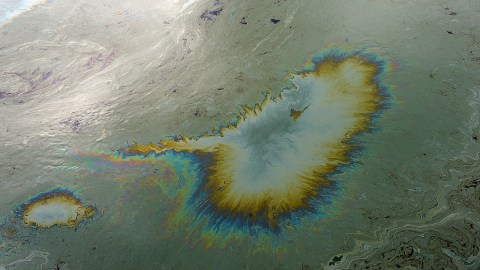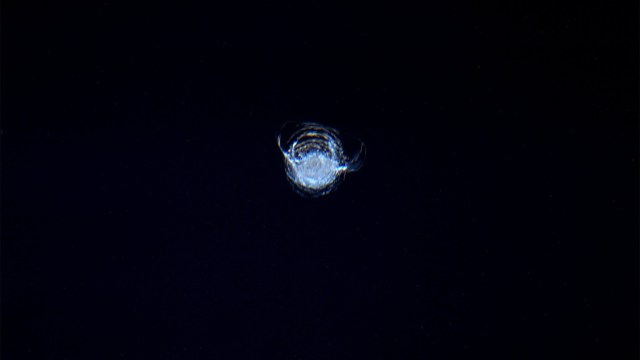How Do You Clean Up an Oil Spill?

A recent oil spill by the company Shell released over 88,000 gallons of crude oil about 100 miles off the coast of Louisiana. While Shell says that the source of the oil was contained relatively quickly, cleaning up the mess could takes weeks or months.
The incident might raise the specter of BP’s rig accident in 2010 which killed 11 workers and also released lots of oil. However, the magnitude is quite different in comparing the two, since the BP spill led to 87 days of oil being let out into the ocean. The federal government estimated the total oil release to be around 4.2 million barrels in that situation.
Still, the Shell oil spill might be harmful to the environment. Crude oil is harmful to many forms of fish and wildlife, because “its chemical constituents are poisonous.” Contact via the skin and eyes, inhalation, or ingestion, can cause serious issues for animals. And some birds and other mammals have difficulty regulating their internal temperature if they become coated in oil. It’s no wonder that the company is moving quickly on the cleanup process.
Shell is employing skimmers, tools that will attempt to collect the oil that has settled on the ocean’s surface, to start the cleanup process. However, a variety of environmental groups are upset about the fact that the incident happened at all, arguing for alternatives to offshore drilling. The controversy begs the question — how hard is it to clean up an oil spill and what exactly does that entail?
Well, interestingly, the process of cleaning up an oil spill depends on what kind of oil was spilled and where it spilled in the first place. In some situations, such as when the oil is not in danger of polluting coastal land, it can be best to let sunlight, wind, and the water disperse the oil on their own. Skimmers, such as what Shell has employed are another solution. Companies also use dispersants to get the oil to break up and biodegrade faster, or biological agents that convert the oil to less harmful states.
—
Header Image: PIUS UTOMI EKPEI / Stringer (Getty Images)





